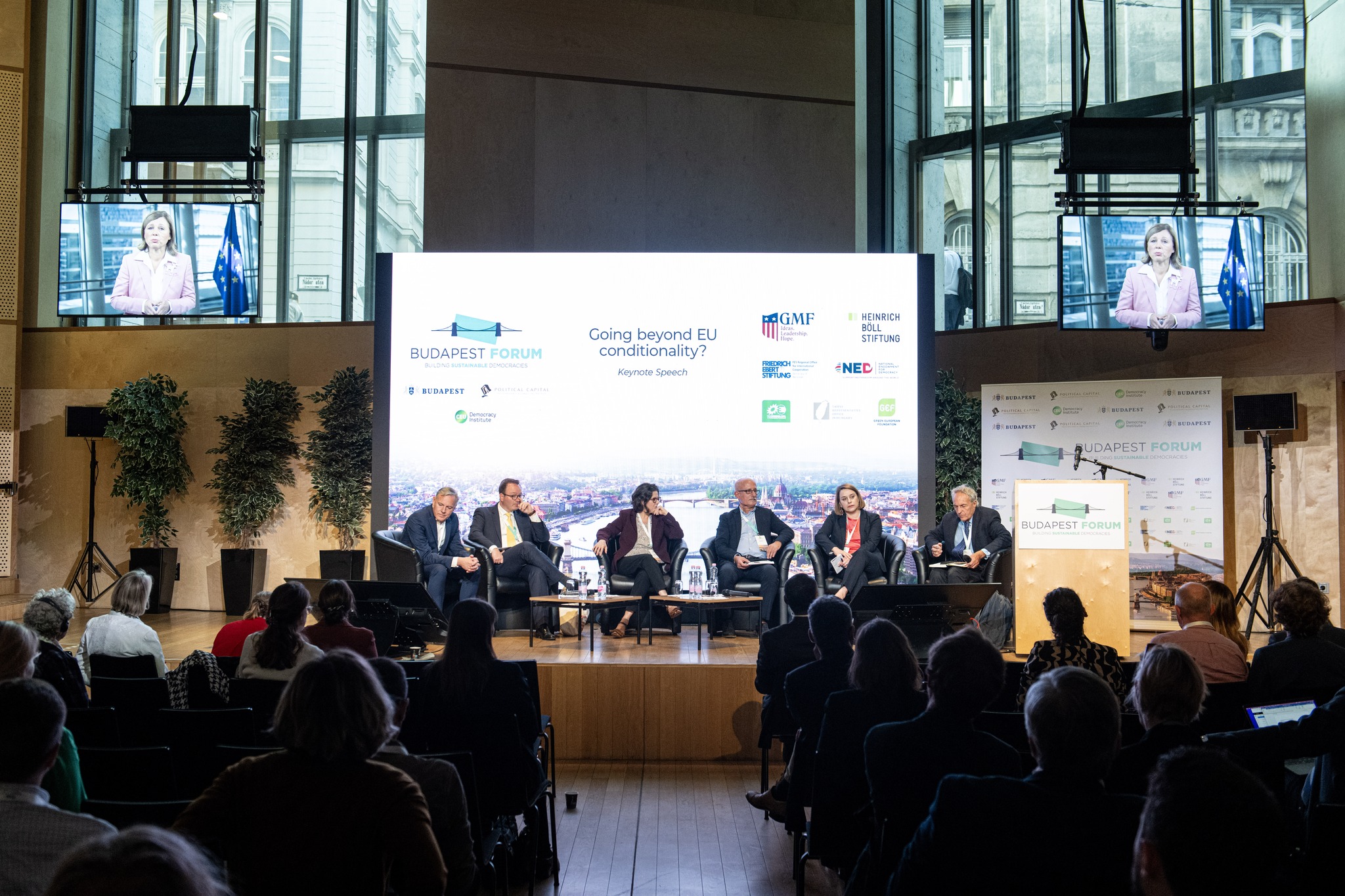Budapest Forum 2023 - Going beyond EU conditionality?
2023-10-19
Speakers
- László Bruszt, Director, CEU Democracy Institute
- Gwendoline Delbos-Corfield, Member of the European Parliament, Greens/EFA
- Boris Kálnoky, Head of Media School, Mathias Corvinus Collegium
- John Morijn, Professor, University of Groningen; Fellow in Law and Public Policy, Princeton School of Public & International Affairs
- Márta Pardavi, Co-Chair, Hungarian Helsinki Committee
Moderator: Nick Thorpe, Central Europe Correspondent, BBC

Main takeaways
- After the UK’s disastrous exit from the European Union, Hungary and the Orbán-regime is the model for other Member States, which want to keep all the advantages while not abiding the rules. This model spreading can destroy the EU from the inside. However, we can learn from the mistakes made and we might be wiser and more experienced next time.
- The conditionality mechanism is not a magic wand. Conditionality is fundamentally an economic tool to protect EU funds, and it came from frugal countries like the Netherlands which were frustrated with corruption in Hungary. On the other hand, it is also a political tool to protect the rights of European citizens, but it is not enough in itself to fix Hungary’s issues.
- Defending human rights is a key function of the rule of law, and when judiciaries in Hungary are getting politicized, it is crucial that human-rights organization can still turn to the EU Court of Justice.
- The Orbán-government’s strategy is to play the long game and wait for a new, maybe more favorable European Commission and US administration.
- Boris Kálnoky sees the EU as overly bureaucratic, with ever more powers and competence moving to EU institutions, making it less democratic. Kálnoky thinks that both national conservatives and the proponents of rule-of-law conditionality think that these mechanisms have a federalizing effect on the EU. The main difference is that nationalists think that this centralization of power is the main function and objective of the mechanism, with the erosion of national sovereignty. László Bruszt thinks that equaling federalism with centralization is misleading, as a federal structure would safeguard the sovereignty of states. So nationalists in reality are afraid of centralization, not federalism.
- Kálnoky would prefer an EU with equal members, with less regulation and bureaucracy and a competitive economy. However, John Morijn said that since Member States are co-legislators, they are the ones creating the rules and bureaucracy, so when they criticize Brussels for being regulation-heavy, they are criticizing themselves.
Recommendations:
- We need to move beyond the rule of law conditionality and also focus on the democratic playing field and media to fight autocratic tendencies. The EU needs to support municipalities and civil society more directly.
- The EU must use complementary tools, like infringement procedures, Article 7, or revoking the EU presidency, to enforce the rule of law in Member States.
- Having a European Court of Appeals would be advantageous so governments could appeal EU court decisions.
Copyright 2024. Political Capital Policy Research and Consulting Institute, all rights reserved.

